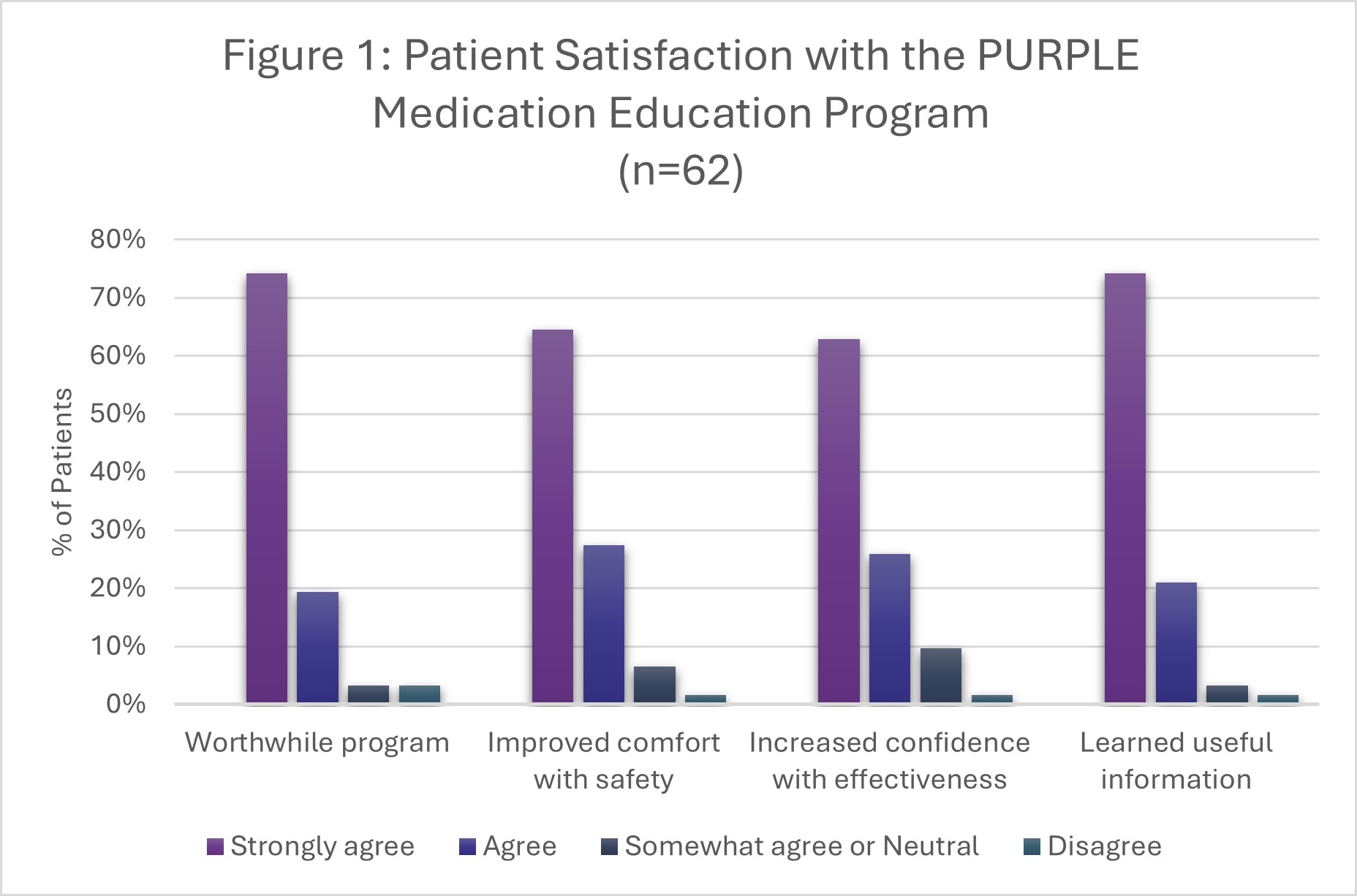Session Information
Date: Tuesday, October 28, 2025
Title: (1972–1989) Measures & Measurement of Healthcare Quality Poster II
Session Type: Poster Session C
Session Time: 10:30AM-12:30PM
Background/Purpose: Patient education is critical for managing rheumatic diseases. Rheumatology clinic pharmacists are well-positioned to assess and address gaps in patients’ understanding of their medications. The objective of this study was to determine patient satisfaction and assess patient understanding of rheumatology medications after a pharmacist-led education (PURPLE) in patients starting new treatment for a rheumatic disease.
Methods: Patients attending a rheumatology clinic at the University of Utah (UoU) or Salt Lake City Veterans Affairs Health (VA) who were initiating or switching a disease-modifying antirheumatic drug (i.e., conventional synthetic-, biologic-, and targeted synthetic- DMARDs) received initial medication education by the rheumatologist and/or the clinic pharmacist, per standard-of-care practice. Patients were offered a virtual or phone appointment with a rheumatology clinical pharmacist, approximately 2-4 weeks later. The appointments included 1) a structured assessment of the patients’ knowledge about their medication and 2) education tailored to each patients’ education needs and questions. After the appointment, patients were invited to complete an anonymous survey assessing their satisfaction and knowledge learned during the education appointment.
Results: Among the 62 participants who completed the survey, 49 were from the UoU and 13 from the VA. Patients agreed or strongly agreed the PURPLE education visit was worthwhile (94%), increased their comfort with medication safety (92%), improved their confidence in the medication effectiveness (89%), and provided useful information (95%) (Figure 1). Satisfaction rates were similar between the patient subsets from the UoU and VA (Figure 2). The most frequent categories of information learned during the visit included potential medication related adverse events, what to do if an adverse event occurs, how to administer the medication, and anticipated time to maximum effectiveness (time to onset) (Figure 3).
Conclusion: Patients reported high satisfaction with the PURPLE program. The similarity in outcomes between the clinic sites suggests the program is applicable across different health care systems. These findings underscore the value of personalized, pharmacist-led education for patients receiving treatment for rheumatic diseases.
To cite this abstract in AMA style:
Roake K, Morlan N, Lim S, Giles J, Minjarez A, Cannon G, Grant N, Allsop V, Jensen M, O'Sullivan M, Ching C, Bessen M, Rios J, Walsh J. High Patient Satisfaction with a Medication Education Program: Program to Understand Rheumatology Medications with Pharmacist Led Education [abstract]. Arthritis Rheumatol. 2025; 77 (suppl 9). https://acrabstracts.org/abstract/high-patient-satisfaction-with-a-medication-education-program-program-to-understand-rheumatology-medications-with-pharmacist-led-education/. Accessed .« Back to ACR Convergence 2025
ACR Meeting Abstracts - https://acrabstracts.org/abstract/high-patient-satisfaction-with-a-medication-education-program-program-to-understand-rheumatology-medications-with-pharmacist-led-education/


.jpg)
.jpg)